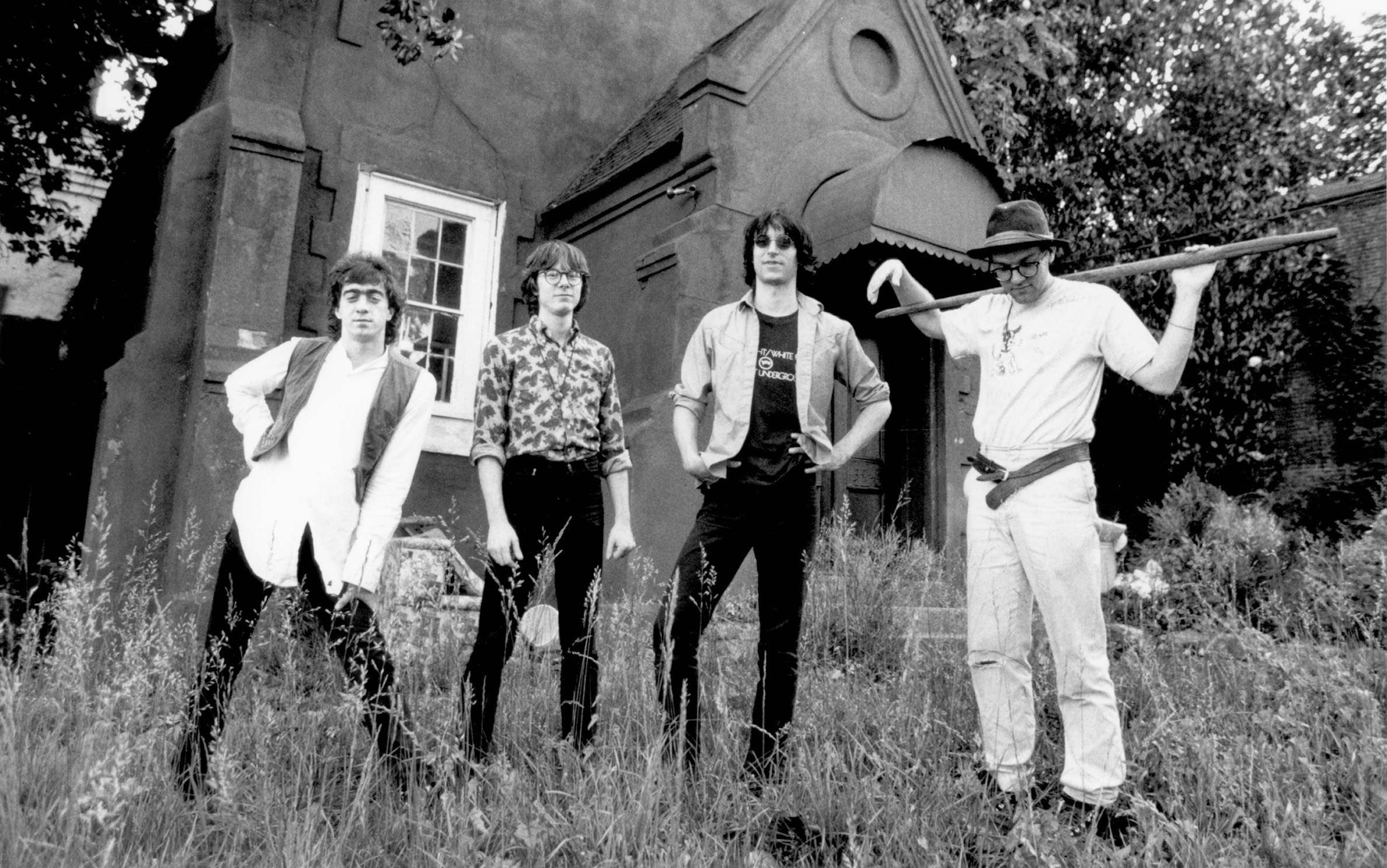When Lifes Rich Pageant came out in July of 1986, Peter Buck was just about to turn thirty (Mike Mills and Bill Berry were about to turn twenty-eight, and Michael Stipe was just twenty-six). Probably surprising no one more than the group themselves, R.E.M. was on the cusp of a breakthrough. Just as importantly, however, they were also on the cusp of what could be only be described as the terrors of full-on adulthood—a pageant that’s not quite as rich as some might say, particularly for those who have decided to try and make a living by being musicians.
Formed in a college town as a college band—and serving as forebearers of “college rock”—the jangle-quartet initially arrived as a symbol of youthful innocence and innovation, much the same as The Byrds in their time, except with less production value, and probably less weed. Picked up by the then-three-year-old independent label I.R.S. in 1982 (on the unbelievable strength of the original “Radio Free Europe” single), R.E.M. flourished in the small-scale, seemingly not ready for anything bigger than that anyway. And even by 1983, when they released Murmur, the band was still so ill-fit for the machine of corporate rock that Stipe, the goddamned lead singer, had to sit next to the drum kit while Letterman interviewed Buck and Mills. “Murmur” wasn’t just a title; it was a way of life.
But whether they liked it or not, R.E.M. were really onto something, and that something was becoming comically larger than anything that their very humble roots in the Athens music scene could contain. In turn, Reckoning and Fables of the Reconstruction sold extremely well for “independent” releases, and the group picked up a following in the process, even if that following was a bit befuddled by the dark tone of the aforementioned Fables. Major labels were circling, and R.E.M. were growing out of their shoes. So they loosened the laces and decided to grow up.
Lifes Rich Pageant is the sound of college graduates standing in the parking lot after the diploma ceremony, staring at the terrifyingly blank slate of the rest of their lives. Of young men realizing that what they decide to do in their twenties will dictate their impending thirties, and how that might screw them over when they’re eventually faced with their forties. Oh, it’s also the sound of a hell of a rock record, unlike anything anyone could have expected just a few short years earlier from the dudes who were singing about pissing on the lawn.
When viewed against their complete catalog, Lifes Rich Pageant probably isn’t the single best R.E.M. album (that’s still Reckoning), but it is the most shocking in terms of sound and approach within the context of the band’s development. Stipe’s lyrics are far less impressionistic and far more purposeful than before (“Fall on Me” and “Cuyahoga,” for instance, are basically environmental songs) and the band’s playing is more precise and ambitious than ever before. “My humor’s wearing thin and the poles are shifting,” Stipe sings on “I Believe.” “My shirt is wearing thin and change is what I believe in.”
Part of the credit for shifting the poles for the better on this one certainly goes to Don Gehman, who produced Lifes Rich Pageant with the adrenaline shot to the ass that the band needed in order to move forward. Previously, Gehman was known for loading up jukeboxes across the country in the form of producing Mellencamp records, so this was an unusual pairing, to be sure. But as it turns out, a little polish was all R.E.M. had standing in between them and becoming a stadium act. Anyway, the big business attitude and big instrument sound suited the big music that they were writing at the time, which, plainly, was deservedly being received as a big fucking deal. And so it all worked perfectly. There was no turning back.
Some may look at 1986 as the year that R.E.M. began to drift into a less interesting direction, but that could really only be the case for those who view veering toward the mainstream as being inherently bad. People were reasonably more suspicious of this kind of thing in the pre-grunge era, but with the benefit of hindsight that was obviously not the case here—especially for a band who didn’t originally fit any of the prerequisites for what constituted major label rock, and who eventually redefined what major label rock sounded like in the first place.
More or less, that’s what makes Lifes Rich Pageant so impressive: it showcases a band crossing over to the other side not by joining the establishment, but by dragging the establishment with them. And in doing so, they took what could have been the end of their career and made it the beginning. It’s right there in the first song: “Begin the Begin.”







